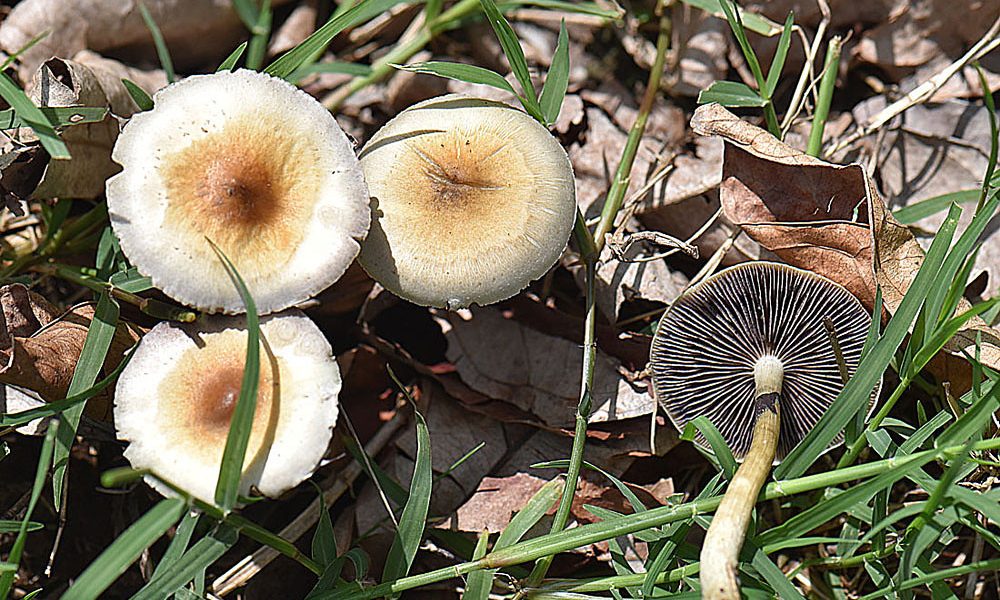Certain psychedelics are now officially legal to possess and grow in Colorado under state law, with the governor formally declaring the results of a ballot initiative that voters approved last month.
Gov. Jared Polis (D) issued the proclamation on Tuesday, along with seven others for separate ballot measures, about a week earlier than he’s required to do under the state Constitution.
While there are still several steps that must be taken to fully implement other aspects of the reform—which also involves creating “healing centers” for supervised psychedelic sessions—possession, cultivation and sharing of certain substances by adults 21 and older is now legal under state law.
The governor’s proclamation provides background on last month’s vote and describes the initiative, which covers psilocybin, ibogaine, mescaline (not derived from peyote), DMT and psilocyn.
“Shall there be a change to the Colorado Revised Statutes concerning legal regulated access to natural medicine for persons 21 years of age or older, and, in connection therewith, defining natural medicine as certain plants or fungi that affect a person’s mental health and are controlled substances under state law; establishing a natural medicine regulated access program for supervised care, and requiring the department of regulatory agencies to implement the program and comprehensively regulate natural medicine to protect public health and safety; creating an advisory board to advise the department as to the implementation of the program; granting a local government limited authority to regulate the time, place, and manner of providing natural medicine services; allowing limited personal possession, use, and uncompensated sharing of natural medicine; providing specified protections under state law, including criminal and civil immunity, for authorized providers and users of natural medicine; and, in limited circumstances, allowing the retroactive removal and reduction of criminal penalties related to the possession, use, and sale of natural medicine?”
The measure legalizes “personal use” amounts of the included psychedelics. While it doesn’t set a specific numerical definition for such limits, there is no commercial sales component beyond legal access at the licensed healing centers.
“Coloradans voted last November and participated in our democracy,” Polis said in a press release. “Officially validating the results of the citizen and referred initiatives is the next formal step in our work to follow the will of the voters and implement these voter-approved measures.”
The psychedelic substances remain federally illegal.
At the state level, the next step is for the governor to make appointments to a new Natural Medicine Advisory Board under the Department of Regulatory Agencies to assist with implementation. The voter-approved law directs him to make his picks by January 31, 2023.
The board must then develop and submit recommendations on a number of psychedelics-related issues, including public education campaigns, research and ensuring equitable access. Their deadline for the initial recommendations is September 30, 2023.
What will take more time is establishing psilocybin healing centers as prescribed under the initiative. Regulators have until January 1, 2024 to establish rules for trained facilitators to work at the centers, and they must be ready to implement the therapeutic program and begin accepting licensing applications by September 30, 2024.
At first, the healing centers will only involve psilocybin and psilocyn. But by June 1, 2026, the advisory board could start recommending that other psychedelics such as ibogaine, mescaline (not derived from peyote) and DMT be added to the list of substances that can be used at the facilities.
Polis said following the vote last month that he’s “excited” about reform, calling psychedelics a “promising” treatment option for certain mental health conditions.
He cheered the approval of the psychedelics ballot measure, despite having declined the opportunity to endorse to proposal ahead of the vote.
Certain psychedelics reform advocates had actively opposed the initiative, including some activists who pushed for an alternative legalization measure that didn’t make the ballot.
Those activists argued that the initiative imposes too many regulations for entheogenic substances and would benefit corporate interests that want to provide psychedelic treatment services.
Meanwhile, Polis signed a bill in June to align state statute to legalize MDMA prescriptions if and when the federal government ultimately permits such use.
Read the governor’s proclamation declaring the vote for the psychedelics ballot initiative below:
GOP Congressman Files Marijuana Research Bill With Days Left In Session
Photo courtesy of Dick Culbert.
Read the full article here

